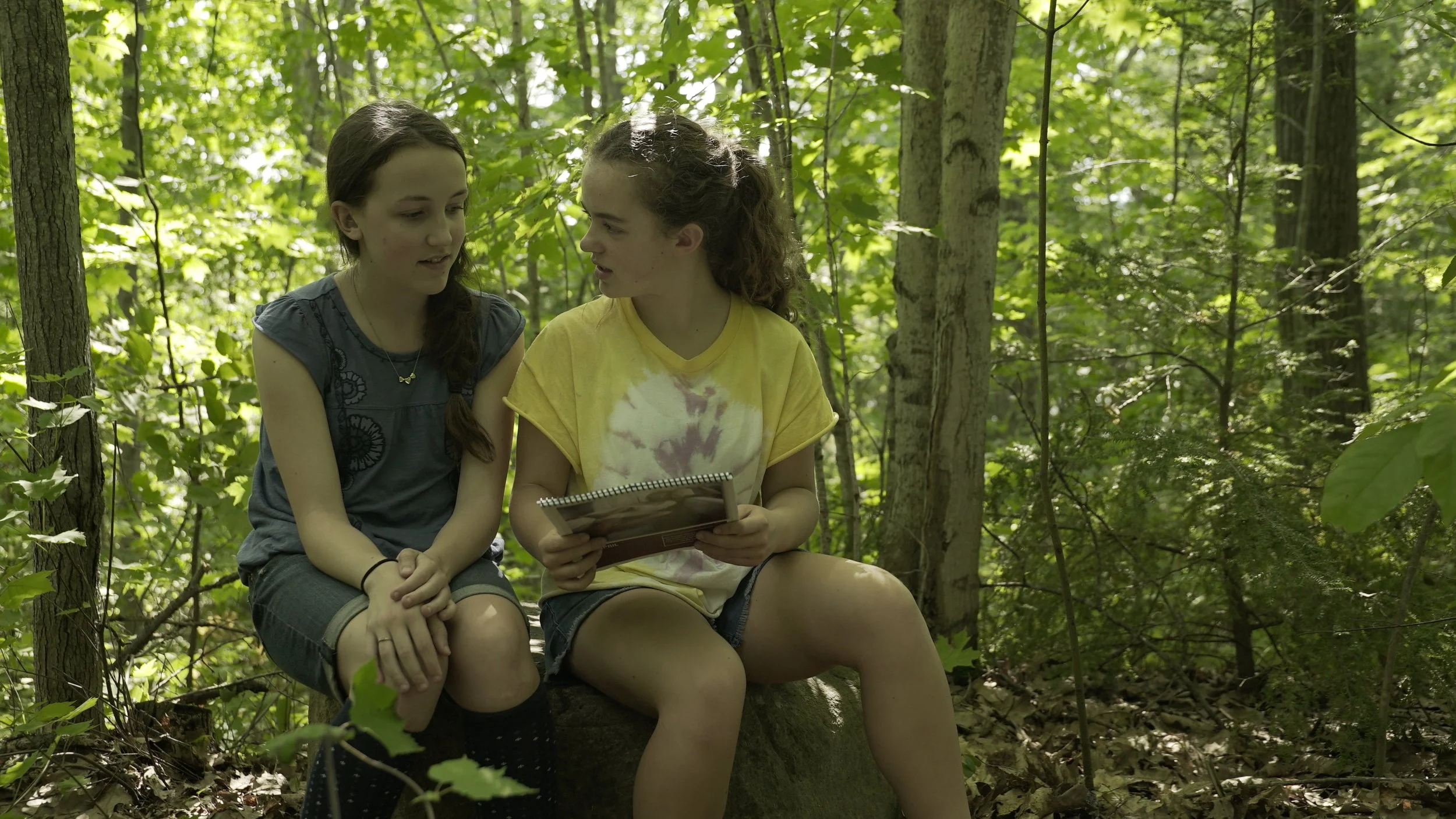Porcupine Lake a sweetly told gem about a summer tween BFF crush
By Jim Slotek
Rating: A
In a perfect world – one where Canadian movies didn’t have to wait months to get a release (or years, or not at all) – Porcupine Lake would have been part of the conversation in the year of female coming-of-age movies.
Lady Bird and The Florida Project dominated the conversation while Ingrid Veninger’s sweetly-told tale of a tween summer best-friend crush waited to be seen. The movie, which was nominally funded and heartily encouraged by Oscar winner Melissa Leo, has its own very Canadian vibe. But it has universal appeal to anybody who remembers how it felt to be an awkward age.
Charlotte Salisbury and Lucinda Armstrong Hall: An intense summer for unlikely best friends
City girl Bea (Charlotte Salisbury) is dragged to Ontario cottage country, Port Severn, with her parents Ally and Scotty (Delphine Roussel and Christopher Bolton), whose agenda is to patch their marriage troubles with a common project – the operation of a local greasy spoon.
But for a few side characters, Ally and Scotty are the key adults in Porcupine Lake. The sunny lakes and woods, flaked-paint houses and dirt roads are a world inhabited by Bea and the sass-flinging Kate (Lucinda Armstrong Hall), an abrasive and domineering local girl whose personality at first seems at odds with Bea’s. But Bea’s shyness and lack of confidence actually makes Kate a perfect fit.
The pair have an instant and innocent intimacy that includes hair-styling and kiss-practicing, but Kate has a few years of too-soon maturity on Bea, courtesy of her troubled family and particularly her violence-prone brother Romeo (Harrison Tanner). That side of her psyche tends to lead Bea into dangerous situations, and make her a worrisome influence for Bea’s parents (whose own situation unravels fairly quickly in the course of the film).
Soon both girls have dysfunction in common, which only makes them cling harder and more futilely, to each other. Their relationship is doomed by geography and possibly class. But unlike the approach an American scripter might take, the stakes are (only) emotional. Porcupine Lake isn’t life or death – except in the sense that everything is life or death at that age. Ironically, as their worlds begin to split apart, it’s the city-mouse Bea who begins to find her emotional footing and self-confidence, while Kate’s bravado begins to tragically melt under the heat of harsh reality.
Sort of a female counterpart to last year’s cottage-country critical hit Sleeping Giant, Porcupine Lake sails on the natural and seemingly effortless performance of its two leads (Salisbury is a complete novice, while Hall has but a few credits to date in her native Australia). Veninger, a former child actress herself, has come to specialize in coming-of-age movies (Modra, Only), and has an instinctive sense of the breathing room the characters and actors both need.
The story is partly based on Veninger’s own summer experiences in Port Severn during her childhood, and there’s an undeniable authenticity to how it unfolds and the quiet intensity behind the relationship.
A micro-budget auteur, Veninger seems to have found her stride more strongly in Porcupine Lake than in any of her previous features. That confidence bodes well for her future work.
Porcupine Lake. Directed and written by Ingrid Veninger. Opens in Toronto February 23 at the Carlton Cinema and in select Canadian cities.
Click HERE for an Original-Cin Q&A with Porcupine Lake director Ingrid Veninger.

